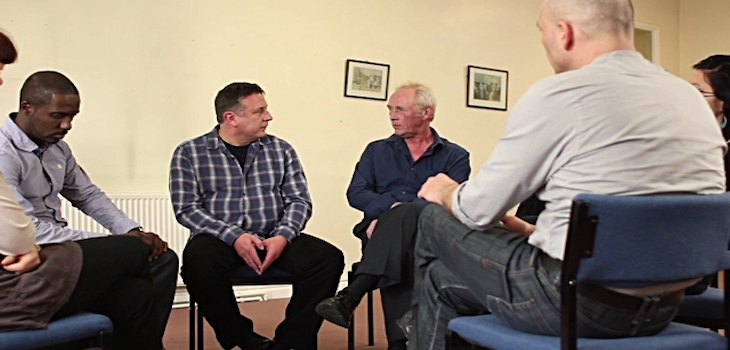Couples Therapy
-
Do you feel like your relationship or marriage is on the brink of disaster?
-
Does your relationship at times face challenges where you feel more distance from your partner than you are comfortable with?
-
Have you had difficulty reaching for your partner lately?
-
Has the dynamic in your relationship or marriage changed?
-
Are you longing for that safety and secure attachment you once had with your partner?
-
Has your relationship suffered a recent betrayal or one partner has turned away?
-
Are you sometimes unsure if you and/or your partner or spouse wants to continue?
A Fragile Bond
A relationship can be a source of one’s greatest joy and also one’s deepest pain.
While it often begins with passion, excitement, closeness, and friendship, it can deteriorate into a relationship where there is distance, anger and indifference. Anyone can fall in love, but staying in love requires consistent effort and knowledge. Maintaining intimacy and preserving a satisfying sexual relationship while mastering life’s challenges requires attentiveness, commitment and communication. A marriage has different stages and with each there are challenges to overcome.
Because life is about attachments and separations and alliances are often fragile, working with the “us” rather than the “I” is critical. Understanding you within the context of your relationships essential: attachment theory is the model of adult love. Intimacy and closeness conjures up associations, which are painful and anxiety-provoking It can feel isolated and alone when you and/or your partner has turned away. It is typically those most delicate of relationships—those within our circle of trust—that have the ability to set into action our pain and most vital fears. It is those fragile bonds that are also the antidote for our pain.
Healthy relationships entail attention. Daily life gets in the way; busy schedules, work responsibilities, parenting demands, and digital life today have put the emphasis on the couple- ship lower on the priority list. Most couples show up in treatment when physical intimacy, relationships within and outside the family, and even simple daily tasks of living have significantly deteriorated and when it appears as though differences are irreconcilable.
Issues that challenge relationships include:
- Betrayal Bonds, Affairs and Infidelity
- Create or Re-Create the Monogamy Agreement
- Polyamory
- Cybersex, Sex and Porn Addiction
- Ineffective Communication and Inability to Manage Conflict
- Life Issues-Illness, Loss, Death and Disability
- Loss of Respect
- Reduction or Loss of Sexual Interest
- Sexual Dysfunction
- Personality Issues in One or Both Partners
- Parenting Differences
- Money and Work
- Blended Family Challenges
- Alcohol, Drug or Gambling Addiction
- Traumatic or Life-Changing Events
- Domestic Violence
Relationships, as with families, come in all shapes and sizes. All individuals and relationships are welcome . . . couples, polyamorous relationships, cisgender, transgender, and non-binary individuals and people who identify as heterosexual and LGBTQA.
Couples Therapy Can Help
There is hope! Couples therapy can help remove the impasse and stimulate growth. Research has shown that couples that commit to therapy and stay in treatment do well. Couples therapy can help reset priorities, remove the impasse and stimulate growth. You can restore the connection back in your relationship and your marriage!
Couples counseling, helps relationships, married or not, identify, understand and resolve conflicts and improve their connection. It gives couples the tools to communicate better, negotiate differences and heal wounds. The couple or “us” is the patient; however, there may be times in which one or both parties require individual help. Individual psychotherapy is indicated in instances where your partner refuses to attend sessions or if you or your partner is coping with mental illness, substance abuse or other issues.
How Does it Work?
Dr. Winter works with relationships and couples of all orientation, gender or commitment level as well as all cultures. She is an approved clinical supervisor for students of sex therapy.
The initial session for marital or relationship counseling is 75 minutes. Subsequent sessions are 60-minutes, however, for some couples a 75- or 90-minute time frame works better. A three (3) hour intake is an excellent way to jumpstart couples therapy. Multiple sessions can be scheduled for more intensive and quicker results. Dr. Winter offers weekend intensives for couples traveling from out of town, relationships that are in crisis or for those who cannot meet the demands of weekly week-day therapy.
Dr. Winter mixes various evidenced-based models of couples’ treatment, works primarily from an attachment frame and uses Emotionally Focused Couples Therapy. At times there are exercises or readings to be done at home. As a Sexologist, as well as a couples therapist, there is often a blending or integration of modalities, such that the most recent scientific findings and literature can be used to assist you in your change and transilience.
The Integration of Sex and Couples Therapy
Integrative sex and couples counseling education and experience are a mandatory requirement for practitioners who work with couples because at best one of the pair who presents for treatment struggles with even the simplest of sexual concerns.
Most couples who reach for help have a limited ability and vocabulary in which to identify and share their sexual experience. In fact, so too do the many psychotherapists to which they present. Over the decades Dr. Winter has continued to receive referrals from couples’ therapists, albeit well trained and experienced therapists, who, for one reason or another, lack the ability or desire to work with the sexual piece. In addition, most are not trained in sex and sexuality and as such are limited in their experience within this realm.
Relational issues within a couple, married or unmarried, are yet one piece of the sexual pie and only one piece where things can be misaligned. Orgasmic release requires the perfect storm. Physical, physiological, intrapsychic, familial, religious, spiritual and relational elements require a somewhat perfect alignment in order to create safety, security, and arousal. With even one piece out of sync, limitations and obstacles can enter the bedroom.
What Happens If My Partner Refuses to Attend?
This is more than prevalent in couples presenting for treatment. In order to have a marriage, both parties need to be willing to participate. It is often recommended, but a failure for both to attend is not always the end of the relationship. Couples therapy can be done with one and individual therapy can be done with two. That is, at times, through the change of one partner, the relationship can be altered. And, within the attachment frame of EFT for Couples, so too can deep change be made within the individual. At other times, the unwilling partner will be ready to join the process.
Alternatively, Dr. Barbara Winter, as a certified Discernment Counselor, offers a process to couples on the brink-where one or both partners are leaning-out or when only one is leaning-in. This treatment model is designed to help couples gain clarity and confidence to proactively decide to maintain the status-quo, divorce or commit to a trial of couples counseling. For this process, both partners need to attend.
What Is the Process of Couples Counseling?
EMOTIONALLY FOCUSED COUPLES THERAPY – EFT
“Bonding goes from the cradle to the grave” (Dr. Sue Johnson).
Dr. Winter has been trained by and practices the empirically based methods of Dr. Sue Johnson—Emotionally Focused Couples Therapy (EFT). It is a humanistic therapy that is based on the notion that it is through attachment and connection that the relationship exists and heals. Therapy focuses on understanding and healing the fragile bond between two people. It is through this process that couples can resolve conflict and learn to effectively communicate, build trust, and reestablish intimacy.
How we show up in love starts at the moment of birth and is largely a function of our early experiences of attachment, attunement, connection, and longing. If our caregivers, typically our parents, provide a mirror at those critical moments, we learn to connect. Yet, if our caregiver turns away from us in our moments of need, we learn to disconnect. We can develop a secure, anxious-preoccupied, dismissive-avoidant, or fearful-avoidant attachment, one that reemerges and shows itself in our most intimate adult relationships. Emotion and attachment style organize our connection.
Emotion is the key organizer in relationships. By addressing how partners construct their emotional experience and rules of engagement, EFT takes a couple from fear, pain, and chaos to the predictable, explainable, and changeable. Cutting-edge research identifies the neuroplasticity of memory consolidation and the way in which we are wired for relationships. Through the therapy process and the creation of small securely attached experiences, couples learn a new dance, a new way of connecting. Reworking couples’ cycles, re-establishing connection, and strengthening the emotional bond with EFT can take a couple from an anxious and insecure attachment pattern to a more secure and safe connection.
EFT is a short-term therapy. According to EFT outcome research, 90% of couples show significant improvement and 70-75% move from distress to recovery in eight to 20 sessions. (That number can change when there is betrayal, significant psychopathology, or addictions in one or both partners). EFT is currently the gold standard of therapeutic modalities for helping couples.
Dr. Winter brings a unique blending of over 35 years of experience and training in the area of relationships, couples, and sex therapy in Boca Raton. She is the only psychologist in Florida who is a sexologist, is EFT trained and holds certifications in discernment counseling, sex addiction, EMDR, group therapy, and hypnosis. She is available and willing to help you learn a new way of being, end your current marriage the way it is, or simply modify it to have a new way of relating. It is her mission to help you achieve “emotional, sexual, and spiritual health.”
We Want to Get Started . . What Are the Best Options?
There are several ways in which couples therapy can be structured. Most couples who are local to South Florida opt for the standard intake (1.25 hrs). This is followed by separate assessment sessions for each partner in which attachment patterns and trauma histories are extracted in order to begin to understand what comes into “the space between”. Subsequent sessions are done primarily as a couple.
For couples who present a challenge due to physical distance, there are a few options. For one, many couples, at least within driving distance, opt for a three-hour initial session; this includes the standard intake, the two individual sessions and a summary meeting to determine the best path. This approach has been found most productive for many couples, as they leave with great insight and hope for their repair. There is also a couple’s intensive, structured exclusively for you.
COUPLES INTENSIVES
For those couples who travel from out of the South Florida area or simply want to jumpstart their journey to mending and restoring their emotional and physical intimacy, there are couples intensives available, structured to your needs. Couples intensives differ from a couples workshop in that these are private therapy sessions just for the couple. In-depth work offered in a couple’s intensive provides the opportunity for accelerated progress not otherwise offered in the traditional weekly format. Further, taking a ‘time out’ from daily life really allows you the space in which to be present and heal. Typically these entail a two to three day weekend format and can be tailored to your needs. Please contact the office to discuss your unique scheduling needs.
You can read more on the intensives offered by Dr. Barbara Winter here.
What Stops you from Taking Steps to Repair Your Relationship?
“My partner refuses to attend.” . . . As I stated, regardless of what your partner chooses—living in conflict and/or detachment, should not be an option. Unfortunately for many it often is. Feeling helpless and powerless to achieve any movement towards growth is not uncommon since the dance of intimacy takes two. Addressing the issues alone can often get you out of the impasse you are in.
“We have tried mediation, why would this work?” . . . Marriage counseling is not mediation. It is not a place to attend to ensure that you are wrong and your partner is right, despite your list of established grievances. Nevertheless, it is a place to really listen to your partner’s pain and be heard. Healing the attachment bond is a critical pre-requisite to having a healthy relationship.
“We tried already and got nowhere.” . . . Not all couple or marital therapists nor models of couples’ therapy are equal. Emotionally Focused Couples Therapy hones in on the fragile bond and connection that is mandatory to a healthy couple-ship. Healing attachment wounds within the context of the relationship is a critical step towards repair.
“We are not married nor is that planned at this point” . . .Whether you attend therapy for relationship issues, marriage counseling or pre-marital counseling, therapy can help. It can help you learn about you within the context of your relationship. It can help you make gains within yourself and your relationship as, if you dont, you will likely carry these patterns into your future relationships. Most of all it can help you grow and grow the relationship.




